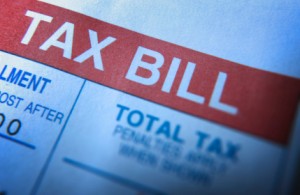In this world, nothing can be said to be certain, except death and taxes.
~ Benjamin Franklin ~
 Taxes are not unique to any nation or era. They are now, and have always been, one of the few things that has remained certain regardless of the times or form of government in place. In spite of calling taxes by other names, emperors, kings, presidents, and tribal leaders have always found ways to convince their people to contribute to the national treasury. Our own Founding Fathers were not opposed to taxes in principle, but were vehemently opposed to taxation without representation.
Taxes are not unique to any nation or era. They are now, and have always been, one of the few things that has remained certain regardless of the times or form of government in place. In spite of calling taxes by other names, emperors, kings, presidents, and tribal leaders have always found ways to convince their people to contribute to the national treasury. Our own Founding Fathers were not opposed to taxes in principle, but were vehemently opposed to taxation without representation.
If, from the more wretched parts of the old world, we look at those which are in an advanced stage of improvement, we still find the greedy hand of government thrusting itself into every corner and crevice of industry, and grasping the spoil of the multitude. Invention is continually exercised, to furnish new pretenses for revenues and taxation. It watches prosperity as its prey and permits none to escape without tribute.
~ Thomas Paine ~
Taxes: From the Revolution to 1913
Following the Revolutionary War, the newly formed American government was justifiably cautious about the subject of taxation, and direct taxation was for all practical purposes was disallowed by the Constitution. As a result, government revenue initially came from tariffs and duties on various items: sugar, liquor, tobacco, legal documents, etc. Because whiskey was targeted, the first real challenge to our first tax codes came in 1794. The Whiskey Rebellion began when Pennsylvanian farmers, angry about the tax on whiskey, set fire to tax collectors’ houses as well as tarring and feathering a few that didn’t leave town quickly enough. Congress defended its right to collect taxes and put a stop to the insurrection with military force.
From the Revolution till the Civil War, federal taxes continued to consist of tariffs, import duties, and property taxes. In other words all federal taxes were applied against usage rather than income. The outbreak of the American Civil War led to almost immediate and massive debt from the cost of waging a war of such scale. In an effort to pay the debt, Congress passed the Revenue Act of 1861. The tax was levied on incomes exceeding $800 and was not rescinded until 1872. This can be considered the birth of the modern tax system with the formation of the Internal Revenue Service and a progressive tax based on income rather than spending. Over the following decades the federal tax was at times a flat tax, at times progressive, and at times suspended.
With the passing of the 16th Amendment in 1913, America entered the era of a mandated progressive tax of income. The first income tax in the new era applied only to people with incomes greater than $3,000, meaning less than 1% of the population paid any tax at all. There were promises the tax rate would never rise much higher, but it didn’t take long for World War I and three successive Revenue Acts to change the tax scene in America forever. The number of people paying taxes in the U.S. increased to 5%, and separate taxes were introduced for estates and excess business profits.
Sanity returned to lawmakers and taxes were rolled back in phase immediately following the war. Interestingly total revenue from the income tax rose from $3.6 billion in 1918 to $6.6 billion in spite of five successive tax cuts. Only Black Tuesday in 1929 could stop the revenue increase and it fell to $1.9 billion by 1932.
Between the Great Depression, Roosevelt’s New Deal and WWII, the top tax rate grew from 1% in 1913 to 76% in just 23 years. By 1940, the need for the U.S. to prepare for war and prop up its allies quickly led to even more aggressive taxation. People with incomes of $500 were taxed at a rate of 23% tax and the top tax rate was an incredible 94%. By 1945, 43 million Americans paid tax generating revenue of $45 billion, up from $9 billion in 1941.
The tax codes of the Great Depression and World War II set a precedent for everything to follow. Top tax rates remained in the high 80% range well into the 1950s, and the system of withholding taxes instituted during the war was never rescinded. Attempts to lower taxes only resulted in the proliferation of loopholes and fine print in tax laws that made tax attorneys rich and people scratching their head.
The Economic Recovery Tax Act of 1981 offered the first real slowing of runaway taxation. Ronald Reagan was true to his campaign promises and lowered the individual tax brackets by 25%. His reforms also changed corporate tax codes, thus encouraging investment in equipment. What was not expected was that inflation would drop too much. The government’s budget was based on a projected rate of inflation, but when inflation dropped too quickly, a deficit was the result. Top end taxes were adjusted upwards to stem the deficit. After some adjustments the economy began to move forward, and the Reform Act of 1986 lowered the top rate back to 28% and cut corporate tax to 35%.
The tax legacy of the Clinton and Bush years is a mixed bag of success and failure. When Clinton was elected in the ’90s, the downward trend in tax-rated came to an end. Finally in 2001, George W. Bush introduced tax cuts that helped shorten the recession following the dot-com crash facing the retirement of the baby boomers and their expected strain on social programs. Conversely the Bush administration did little to stem the tide of federal spending and recession has once again gripped the nation for several years.
What can be learned from this brief tax history lesson? If all things remain equal, probably not much. Until people understand the disastrous effect of progressive taxes, they will likely complain every April 15th and forget all about come the next Election Day.
The flat tax would be so simple; you could fill it out on a post card. A post card that would say, in effect, having a wonderful time; glad most of my money is here.
~ Steve Forbes~
_________________________________________________________
 Off The Grid News Better Ideas For Off The Grid Living
Off The Grid News Better Ideas For Off The Grid Living

